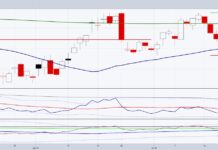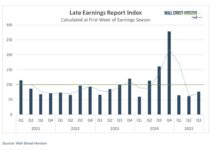 The recent Wall Street Journal article, “How to Lose Money in the Market in a Hurry,” argues against making an investment based on the previous year’s big winners, and encourages investors to instead look at broader past performance indicators such as the previous 15 years’ statistics to predict the emerging hot funds. I disagree with the underlying premise of the latter argument and it is important that you understand why.
The recent Wall Street Journal article, “How to Lose Money in the Market in a Hurry,” argues against making an investment based on the previous year’s big winners, and encourages investors to instead look at broader past performance indicators such as the previous 15 years’ statistics to predict the emerging hot funds. I disagree with the underlying premise of the latter argument and it is important that you understand why.
In the article, Mark Hulbert writes, “The evidence is that last year’s top performers will lag the market in 2014—if not lose a lot of money.” Hulbert backs up his claim with solid statistical evidence, then further advises: “You would do much better to focus on performance over far longer periods than the past 12 months. While there is no magical track-record length on which you should always focus, 15 years is a good rule of thumb. The past 15 years—from the beginning of 1999 through the end of last year—encompass two powerful bull markets and two crushing bear markets.”
Those previous 15 years, with the wild extremes, prove that we are in an entirely new era, I believe. And if that’s true, then gauging a fund over even 15 years is worthless; the rules have changed completely.
The underlying assumption that Hulbert and others like him guard is that over longer periods of time, markets will produce results similar to what they have done in the past – the past performance indicator. Almost the entire financial planning industry is built on this concept. The belief is that because we can’t predict the future, we should assume that the past will repeat.
Yet, if the market is in a completely unprecedented epoch, then old patterns no longer apply. Counsel similar to what Hulbert offered presupposes that the era we are in is similar to what occurred over the past 30 years. I believe the massive change in economies, incomes and personal lifestyle resemble the same sorts of drastic changes brought about by the Industrial Revolution. If today’s financial planning model and typical approach to investing was used early in the Industrial Revolution, it would have failed investors, because it would have been based on the hand-made era, which no longer existed. A comparable historical change is occurring right now.
Given the erratic pattern of the market over the past decade and the explosion of the Internet and related technologies, we are squarely in a time of rapid change, with a dire need for a new perspective. The era that most of today’s retired investors experienced their entire working careers (1950 to 2000) is one that we may never experience again. Then, it was a time of slow, continuous and somewhat predictable change. Now, we are in an era of fast, discontinuous change. Change happens much more quickly–and is much more difficult to predict.
As a result, investors need to be wary of the tired advice given by the financial services industry, which has a vested interest in maintaining the status quo. In fact, we may be embarking on an extended period where interest rates increase and bonds may no longer provide the defensive aspect they have historically in portfolio construction.
In laymen’s terms, investors need to entrust their money to a money manager that understands this new era and will pay extremely close attention to market shifts. Any financial planner that you’ve given your money to absolutely must respond quickly to market changes, taking steps to minimize losses before a market free-fall, while doggedly pursuing opportunities for growth. This type of approach can grow a fund much better than a 15-year past performance indicator from a bygone era.
Common Sense Advisors does not offer investment advice via this medium. Under no circumstance whatsoever do these postings, opinions, charts, or any other information represent a recommendation or personalized investment, tax, or financial planning advice. Learn more about our firm at www.commonsenseadvisors.com
Twitter: @JeffVoudrie
Any opinions expressed herein are solely those of the author and do not in any way represent the views or opinions of any other person or entity.







